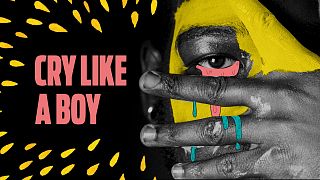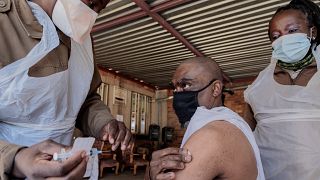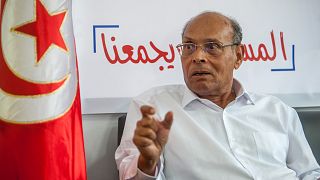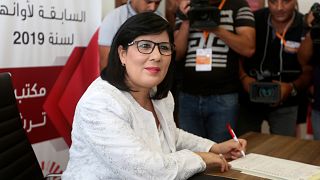Tunisia
Tunisian President Kais Saied sacked the defence minister Monday, a day after ousting the prime minister and suspending parliament, plunging the young democracy into constitutional crisis in the midst of a pandemic.
Street clashes erupted Monday outside the army-barricaded parliament, after Saied dismissed Prime Minister Hichem Mechichi and ordered parliament closed for 30 days, a move the biggest political party Ennahdha decried as a "coup".
Mechichi said he would hand power to the man chosen by the president, in his first comments since the shock move.
Saied declared on Sunday he had "taken the necessary decisions to save Tunisia, the state and the Tunisian people," following street protests in multiple cities against the government's handling of the Covid pandemic in the North African country.
The president, who under the constitution controls the armed forces, warned his opponents against taking up arms, threatening that if anyone "fires a single bullet, our forces will respond with a rain of bullets".
On Monday afternoon, the presidency announced the dismissals of Defence Minister Ibrahim Bartaji and Hasna Ben Slimane, the acting justice minister.
Soldiers from early Monday blockaded the assembly in Tunis while Saied backers hurled stones, bottles and insults at supporters of the Islamist-inspired Ennahdha, whose leader was barred entry to the complex.
Troops also surrounded the office of Mechichi.
Later in the afternoon, the protests died down, with the presidency extending an overnight curfew in place to combat the coronavirus and banning gatherings of more than three people.
- 'Very dangerous' -
Saied's dramatic move -- a decade on from Tunisia's 2011 revolution, often held up as the Arab Spring's sole success story -- comes even though the constitution enshrines a parliamentary democracy.
It "is a coup d'etat against the revolution and against the constitution," said Ennahdha, the lead party in Tunisia's fractious ruling coalition, warning its members "will defend the revolution".
The powerful Tunisian General Labour Union (UGTT) which played a key role in the 2011 uprising, said the president had acted "in accordance" with the constitution to "prevent imminent danger and to restore the normal functioning" of the state.
US Secretary of State Antony Blinken on Monday spoke by telephone with the Tunisian president asking him to respect democracy and "maintain open dialogue with all political actors and the Tunisian people," the State Department said.
The European Union appealed to people to respect the "rule of law" and to "avoid any resort to violence" while former colonial ruler France urged a speedy return to "normal functioning" of the government.
Russia said it was monitoring the situation, while Turkey, where the government supports Ennahdha, called for "democratic legitimacy" to be restored.
The crisis follows months of deadlock between the president, the premier and Ennahdha chief Rached Ghannouchi, which has crippled the Covid response, as deaths have surged to one of the world's highest per capita rates.
More than 18,000 people have died of coronavirus in a nation of 12 million.
Police also shuttered the local bureau of Qatari-based Al Jazeera television, the network's Tunis director Lotfi Hajji said, warning that "what is happening is very dangerous, it is proof that freedom of the press is threatened".
Media organisation Reporters Without Borders condemned the move, while Amnesty International called it a "deeply worrying precedent signalling that human rights are in danger".












Go to video
What to know about the COVID variant that may cause 'razor blade' sore throats
Go to video
WHO approves landmark pandemic agreement to improve response in event of future pandemic
Go to video
Nigeria completes $3.4 Billion IMF COVID-19 loan repayment, faces ongoing annual charges
Go to video
Tunisia: new Human Rights Watch report finds dramatic increase in politically motivated arrests
01:02
WHO member countries draft landmark preparedness treaty for next pandemic
Go to video
Mauritius: Ex-finance minister released on bail after corruption charges